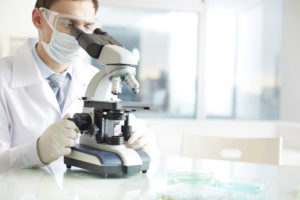JNCASR researchers develop therapeutics to treat ASD

Develops a compound called ‘6BIO’
A group of Indian researchers have developed a compound called ‘6BIO’ that can provide a better method to treat Autism Spectrum Disorder (ASD). They have determined the potency of the compound in a pre-clinical mice model. This is the first compound that has been proved in pre-clinical evaluation to have the potential for improving daily activities like learning and recollecting new tasks in patients with ASD/ Intellectual disability (ID).
In the present work, Vijaya Verma and other authors from Jawaharlal Nehru Centre for Advanced Scientific Research (JNCASR), an autonomous research institute of the Department of Science & Technology (DST), Govt. of India, have demonstrated the potential of 6BIO, to treat ASD/Intellectual disability (ID) in a pre-clinical mouse model called Syngap1+/-. Using behaviour and electrophysiology techniques, the team of scientists have shown in research published in the Experimental Brain Research that the administration of 6BIO restores the neuronal function, learning and memory, and reduces epileptic seizures in Syngap1+/- mice.
The authors of this study Vijaya Verma, MJ Vijay Kumar, Kavita Sharma, Sridhar Rajaram, Ravi Muddashetty, Ravi Manjithaya, Thomas Behnisch and James P Clement, identified 6BIO synthesised in JNCASR and found that it restores neuronal function, learning and memory, sociability and reduces epileptic seizures. The other novelty of this study is that 6BIO restored the neural functions not only when administered during development (equivalent of baby (1-2 years) and childhood stages (3-6 years)) but also after mid-childhood (7-11 years) when most of the brain regions are considered to have formed properly.
Previous studies have attributed disruption in optimal brain development, mainly neuronal connections, during the early stage of development (i.e., babies/childhood) as one of the causes of ASD/ID. Due to the altered brain development, information processing becomes aberrant and understanding simple tasks becomes exceptionally challenging for patients with ASD/ID. Using electrophysiology, which helps understand how neurons communicate, and behavioural experiments, which indicates the overall brain function, the JNCASR team has shown that 6BIO can restore the information processing in the pre-clinical mouse model. Thus, 6BIO has a strong potential for therapeutics to treat ASD/ID. All the behaviour and electrophysiology work was performed in Dr James Clement’s lab at JNCASR.
Patients with ASD still struggle to perform everyday activities without assistance from others as they are unable to learn and recollect new tasks. Data from the current study indicate that 6BIO can help children with ASD learn and recall, be social, and alleviate other symptoms such as seizures or sleep issues. Thus, the compound, 6BIO, can be a better therapeutics option to treat ASD.
PIB




